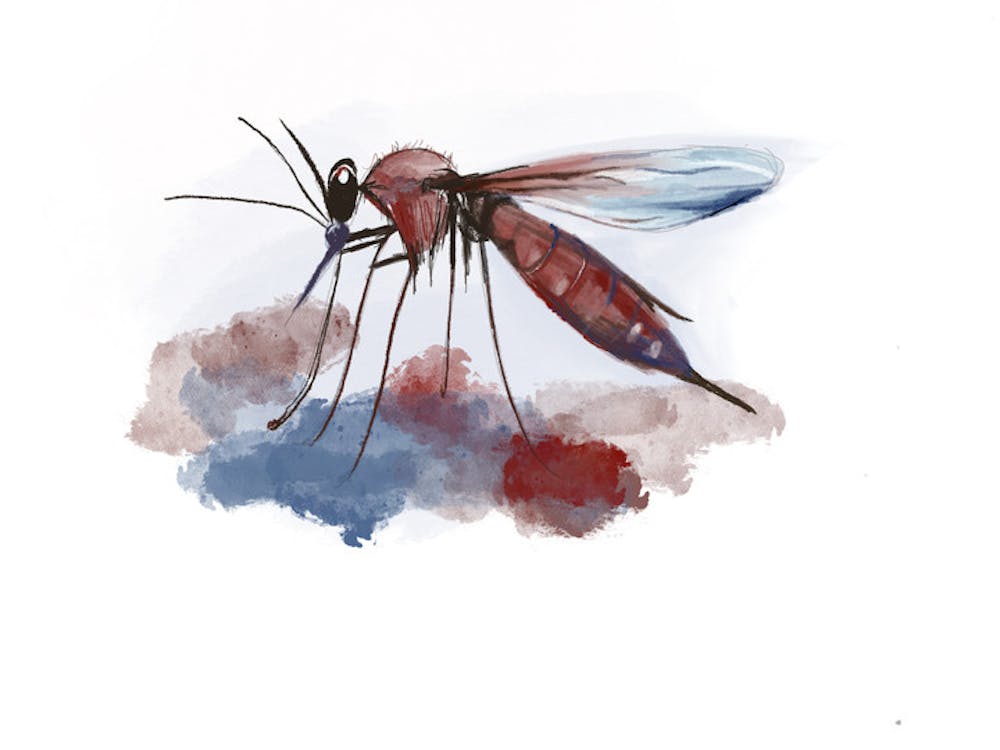On Sept. 7, the Rhode Island Department of Environmental Management and the Department of Health announced the state’s first case of a mammal contracting the eastern equine encephalitis virus in 2023. Rhode Island’s risk for the disease is now classified as high.
EEE and West Nile virus are always in the environment but can only be contracted via infected mosquito bites, not mammal-to-human contact, according to Mike Healey, RIDEM chief public affairs officer. As a result, the diseases are primarily spread during mosquito breeding season, typically from June to September.
“Birds are the reservoirs of the disease,” Healey said. As mosquitoes bite birds, “they start to spread that disease to their own populations” and ultimately other mammals.
EEE cases in humans are rare, though the disease exhibits a high mortality rate — close to 30% — and can cause a multitude of ongoing neurological issues in surviving patients, said RIDOH Public Information Officer Joseph Wendelken.
The last human case of EEE in Rhode Island occurred in 2019 — a year in which there were three confirmed human cases, according to Wendelken. Prior to that, no human had contracted the disease since 2010.
While human EEE cases are unlikely, RIDEM and RIDOH recommend several steps that can be taken to reduce the risk of transmission. Among these are wearing bug spray, avoiding outdoor activities during sunrise or sunset and reducing possible mosquito breeding grounds.
“One small cup of water can produce thousands of mosquitoes,” Wendelken said. “Gutters, downspouts, old tires that you might have in your yard, anything that collects water, you want to make sure to empty out.”
Symptoms of EEE in humans can include fever, chills, body aches and joint pain, Wendelken explained. The “illness tends to last for one to two weeks. … Fortunately, most people recover completely when there is no central nervous system involvement,” he said.
The preemptive positive was determined by a University of Connecticut lab and found in a donkey in Glocester, according to RIDEM’s announcement. As of Sept. 13, RIDEM has declared a total of five positive EEE mosquito samples, in addition to 11 West Nile virus ones.
The state’s current high-risk level has led RIDEM to take precautionary measures, including temporarily closing several recreational areas in Glocester. “We’ve been dealing with EEE and (West Nile virus) for many many years,” Healey said. “There’s no question that we’re having a very active year.”
“Because (EEE) is such a rare disease, there are many unknowns about its ecology,” said Alan Gettman, RIDEM’s mosquito abatement coordinator. “But here comes cooler weather, and we’re nearing the end of mosquito season, so that spread is … going to fizzle out in a few weeks, depending on the weather.”
The Mosquito Abatement Coordination Office, established in 1987, works closely with RIDEM and RIDOH and is primarily tasked with trapping mosquitoes statewide throughout the summer and processing samples for EEE and West Nile virus, Gettman explained.
Gettman noted that recent increases in mosquito-borne diseases are tied to climate change. As climate temperatures rise, “we have a longer warm season (and) longer mosquito season,” he said. This gives viruses more time “to build up and magnify in the environment.”
Data from Climate Central, an independent group of scientists, researchers and communicators, also revealed that the length of Providence’s mosquito season has seen a general increase of 19 days since 1979.

Tom Li is the editor-in-chief and president of The Herald's 135th editorial board. He is from Pleasanton, California and studies economics and international and public affairs. He previously served as a metro editor, covering the Health & Environment and Development & Infrastructure beats, and has worked on The Herald's copy editing, editorial page board, design and podcast teams.





